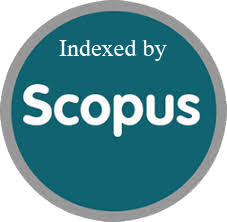Artificial Intelligence (AI) Policy
Artificial Intelligence (AI) Policy
- Introduction
The advancement of Artificial Intelligence (AI) has profound implications for research and publication practices. Our journal is committed to ensuring that the use of AI in research adheres to the highest standards of ethics, transparency, and integrity. This policy outlines our expectations and requirements regarding the use of AI in submissions to our journal.
- Scope
This policy applies to all manuscripts submitted to our journal that involve the use of AI in any aspect of the research process, including but not limited to data analysis, writing assistance, experimental design, and interpretation of results.
- Transparency and Disclosure
- Declaration of AI Use: Authors must clearly disclose the use of AI in their research and/or manuscript preparation. This includes specifying the AI tools, algorithms, or software used and their roles in the research process.
- AI Contributions: Any section of the manuscript generated or significantly influenced by AI should be explicitly indicated. Authors must ensure that the use of AI does not compromise the originality and intellectual contribution of the research.
- Ethical Considerations
- Bias and Fairness: Authors must take measures to identify and mitigate potential biases in AI algorithms and ensure that their use does not perpetuate or exacerbate existing biases.
- Data Privacy: The use of AI must comply with all relevant data protection regulations and ethical standards. Authors should ensure that AI systems are used in a manner that protects the privacy and confidentiality of individuals.
- Human Oversight: AI should complement human judgment rather than replace it. Authors must maintain responsibility and accountability for the content and integrity of their research.
- Accuracy and Reliability
- Validation and Verification: Authors should validate and verify the outputs of AI systems used in their research. This includes conducting robustness checks and ensuring the reproducibility of AI-generated results.
- Documentation: Comprehensive documentation of AI methods, including source code, training data, and parameter settings, should be provided to enable replication and verification of the research.
- Intellectual Property and Authorship
- Authorship Criteria: AI cannot be listed as an author on a manuscript. Authors must meet the criteria for authorship based on their intellectual contributions to the research. The use of AI tools does not qualify for authorship.
- Attribution: Proper attribution must be given to the developers and sources of AI tools and datasets used in the research. Authors should cite relevant literature and acknowledge contributions appropriately.
- Misuse of AI
- Plagiarism Detection: The journal employs AI tools to detect plagiarism and ensure the originality of submissions. Authors found to be using AI to generate content without proper attribution will face appropriate actions, including rejection of the manuscript.
- Fabrication and Falsification: The use of AI to fabricate or falsify data, results, or any part of the research is strictly prohibited and will result in severe consequences, including retraction of published articles and banning from future submissions.
- Review and Monitoring
- Peer Review: Manuscripts involving the use of AI will undergo rigorous peer review, including evaluation by experts in AI to ensure compliance with ethical standards and methodological rigor.
- Policy Updates: The journal will periodically review and update this AI policy to reflect advancements in AI technology and evolving ethical considerations.




